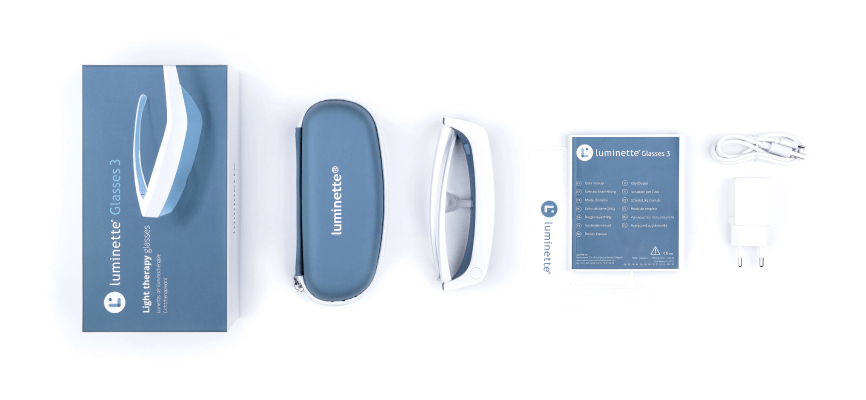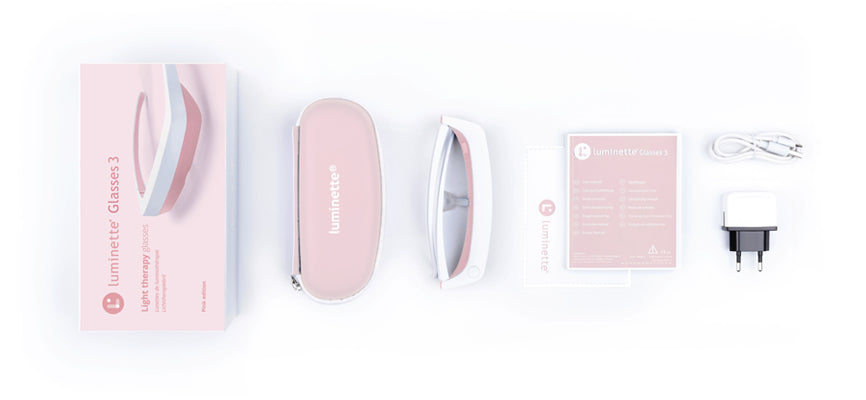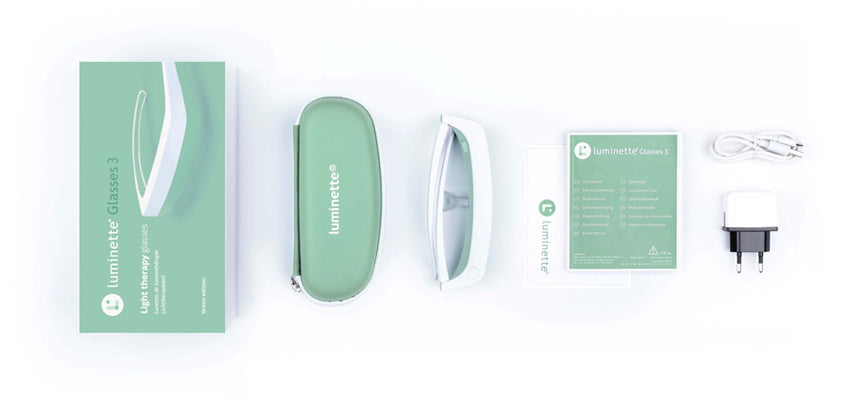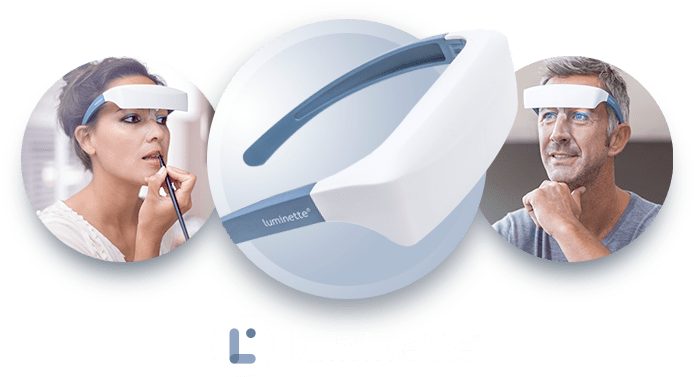Light therapy treats jet lag problems, also known as jet lag, which is the result of quickly crossing (usually by plane) several time zones. It is translated into disturbances of the biological clock of which the duration and intensity are proportional to the number of time zones. The harmful effects of jet lag are only felt after 3 time zones. (example: a flight from Paris - Moscow).
What is Jet Lag and Its Effects
Jet lag is a temporary sleep disorder that affects travelers adjusting to different time zones. It occurs when your body's internal clock, or circadian rhythm, is out of sync with the local time at your destination. This disruption can lead to various physical and mental effects, impacting your overall travel experience.
What Causes Jet Lag?
The cause of jet lag is attributed to traversing several time zones too swiftly, preventing the internal clock, or biological clock, from adjusting to the local time. The primary contributor to jet lag is the swift transition across time zones, which disrupts the environmental cues that the body depends on to regulate sleep-wake cycles. These cues encompass light exposure, meal schedules, and daily routines. When multiple time zones are crossed rapidly, such as during long-haul flights, the internal clock encounters difficulty in adapting promptly, resulting in jet lag.
The severity of jet lag is often contingent upon the number of time zones crossed, the direction of travel, and individual variations in circadian rhythm flexibility. Eastward travel poses a greater challenge compared to westward travel, as it requires adapting to a shorter day to align with the new local time, rather than extending the day, which occurs when traveling westward.
How do I know if I’m suffering from jet lag?
Jet lag symptoms can vary from person to person, but they typically include fatigue, difficulty falling asleep or waking up, and daytime sleepiness. These disruptions in your sleep pattern can lead to decreased alertness, irritability, and impaired cognitive performance, which can significantly affect your travel enjoyment and productivity. Jet lag occurs when your internal body clock is out of sync with the local time zone, often after long flights across multiple time zones. This misalignment can make it challenging to adjust to a new schedule, as your body's natural circadian rhythms are disrupted. The most frequent symptoms include:
- Insomnia: Difficulty falling or staying asleep at night, leading to restless nights.
- Drowsiness: Feeling excessively sleepy during the day, often struggling to stay awake.
- Physical tiredness: General fatigue and lack of energy that can make daily activities feel exhausting.
- Intellectual tiredness: Reduced ability to think clearly, make decisions, and solve problems.
- Mood problems: Increased irritability, mood swings, and feelings of discomfort or anxiety.
- Difficulties concentrating: Trouble focusing, maintaining attention, and processing information effectively.
Overcoming jet lag often requires strategies such as gradually adjusting sleep schedules before travel, staying hydrated, and exposing oneself to natural light to help reset the body's internal clock.
How Light Therapy Helps Combat Jet Lag
Light therapy involves controlled exposure to specific wavelengths of light to influence your body's natural rhythms. When used appropriately, light therapy can help mitigate the effects of jet lag by aligning your internal clock with local time. This safe, non-invasive technique leverages the power of light to reset your sleep-wake cycle.
The principle behind light therapy lies in its capacity to simulate natural sunlight, which is a primary regulator of your circadian rhythm. By exposing yourself to bright light at strategic times, you can help your body adjust more quickly to a new time zone. This exposure signals to your brain that it's time to be awake and alert, reducing the symptoms of jet lag.
To maximize the effectiveness of light therapy, it's important to tailor the timing and duration of light exposure to your specific travel itinerary. For instance, if you're traveling eastward, you might use light therapy in the morning to advance your body clock. Conversely, if heading west, evening exposure can help delay your internal clock, aligning it with the new time zone.
Benefits of Light Therapy for Jet Lag Recovery
Light therapy offers several benefits in managing jet lag, making it an essential tool for health and wellness seekers who prioritize their well-being during travel. By incorporating light therapy into your jet lag management plan, you can experience improved sleep quality, increased energy levels, and faster adjustment to new time zones.
Improved Sleep Quality
One of the most significant benefits of light therapy is its ability to enhance sleep quality. By regulating your circadian rhythm through controlled light exposure, light therapy helps you fall asleep more easily and maintain a restful night's sleep, even when adjusting to a new time zone. This improved sleep quality is crucial for ensuring you're well-rested and ready to tackle your travel itinerary.
Better sleep quality also means you'll be less prone to the sleep disturbances commonly associated with jet lag, such as frequent awakenings and difficulty staying asleep. This uninterrupted, restorative sleep can significantly enhance your overall travel experience and well-being.
Furthermore, quality sleep has a positive impact on your immune system, mood, and cognitive function. By prioritizing sleep through light therapy, you're supporting your body's natural defense mechanisms and ensuring you're in the best possible condition to enjoy your travels.
Increased Energy Levels and Alertness
In addition to improving sleep, light therapy can boost your energy levels and alertness. Exposure to bright light stimulates the production of cortisol, a hormone that promotes wakefulness and alertness. This effect can help counteract the fatigue and sluggishness often experienced with jet lag, allowing you to stay energized and focused throughout your trip.
Higher energy levels mean you're better equipped to engage in activities, explore new environments, and enjoy your travel experiences to the fullest. This increased alertness also supports safety, as you're more aware of your surroundings and better able to make informed decisions.
By maintaining consistent energy levels, light therapy helps reduce the negative impact of jet lag on your professional and personal life. Whether you're attending meetings or exploring a new city, you'll be able to perform at your best with the support of light therapy.
Faster Adjustment to New Time Zones
Perhaps one of the most compelling reasons to use light therapy is its ability to expedite your adjustment to new time zones. By strategically influencing your circadian rhythm, light therapy helps your body adapt more quickly to the local time, reducing the duration and severity of jet lag symptoms.
This rapid adjustment allows you to spend less time battling jet lag and more time enjoying the sights and experiences of your destination. It also enhances your productivity and effectiveness, whether you're traveling for business or leisure.
For travelers who frequently cross multiple time zones, light therapy provides a reliable and effective solution to minimize the disruption of jet lag. By incorporating this tool into your travel routine, you can enjoy smoother transitions and a more seamless travel experience.
How can jet lag be fought against?
Jet lag is not a pathology in the strict sense of the term. Therefore, we do not talk about a treatment but rather a solution for a better well-being. These make up part of the classic tool for chronotherapy, namely the tools which enable the resynchronization of the biological clock to its new time. We count 3 main “tools” which the traveller can use to reduce the effects of jet lag: light therapy, taking melatonin, avoiding light and sleep.

Discover what role light plays on the body
with Roland Pec - sleep specialist and chrono-therapist



































